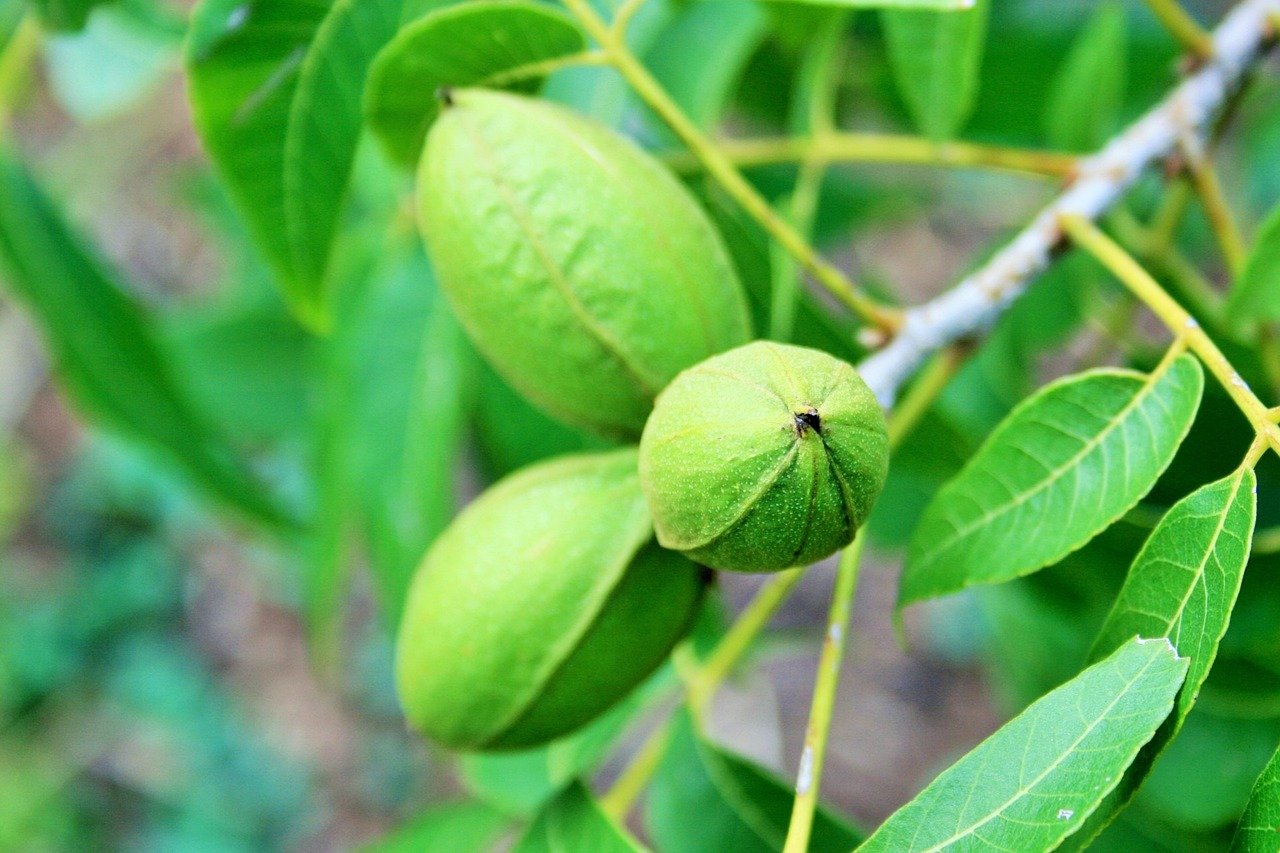

History of Pecan Trees
& Benefits
The origin of the word pecan is derived from the Algonquin Tribe’s word “pacane”, which translates to “nuts requiring a stone to crack”. Over the years many varieties have been named after Native American Indian Tribes to pay homage to them as the first cultivators of pecans, with hundreds of varieties still known today by their given Native American names. Today many of our commercially grown varieties are formulated through breeding programs available from state universities (land grant institutions) and the United States Department of Agriculture. More recently formulated varieties strive to improve overall nut quality and production capacity.
The pecan is the only major tree nut indigenous to North America, native to both northern Mexico and the Southern United States. Because they require a significant amount of moisture to produce a quality crop, pecan trees are native to river bottoms that flood frequently. Another limiting factor is the length of the growing season – trees must have a sufficient warm-weather growing period from April through September, which puts North Carolina on the northern fringe of the commercial-improved pecan producing region of the United States. However, pecans do not grow well in all areas of North Carolina; the best area is the North Carolina Coastal Plain, where Dark Branch Pecans is located.
At Dark Branch Pecans we sell raw, shelled pecans. Pecans are a nutritional powerhouse loaded with vitamins and minerals and are a good source of calcium, magnesium, and potassium – all of which help lower blood pressure – and vitamins A, E and Zinc, which support the immune system. Raw pecans are cholesterol free, sodium free and low in carbohydrates. They also have a rich, buttery flavor with natural sweetness, which is great for making a tasty and satisfying snack! Most of the fat found in pecans is heart-healthy monounsaturated fat. Eating foods high in monounsaturated fat helps to lower levels of bad LDL cholesterol, which cuts down the risk of strokes and heart attacks. Pecans also contain omega 3 fats, which can help ease the pain of arthritis by reducing inflammation. Pecans rank in the top 20 of the top 100 foods for antioxidant levels, as ranked by the USDA, meeting the criteria for being a “Heart Healthy” food and are certified as such by the American Heart Association.
